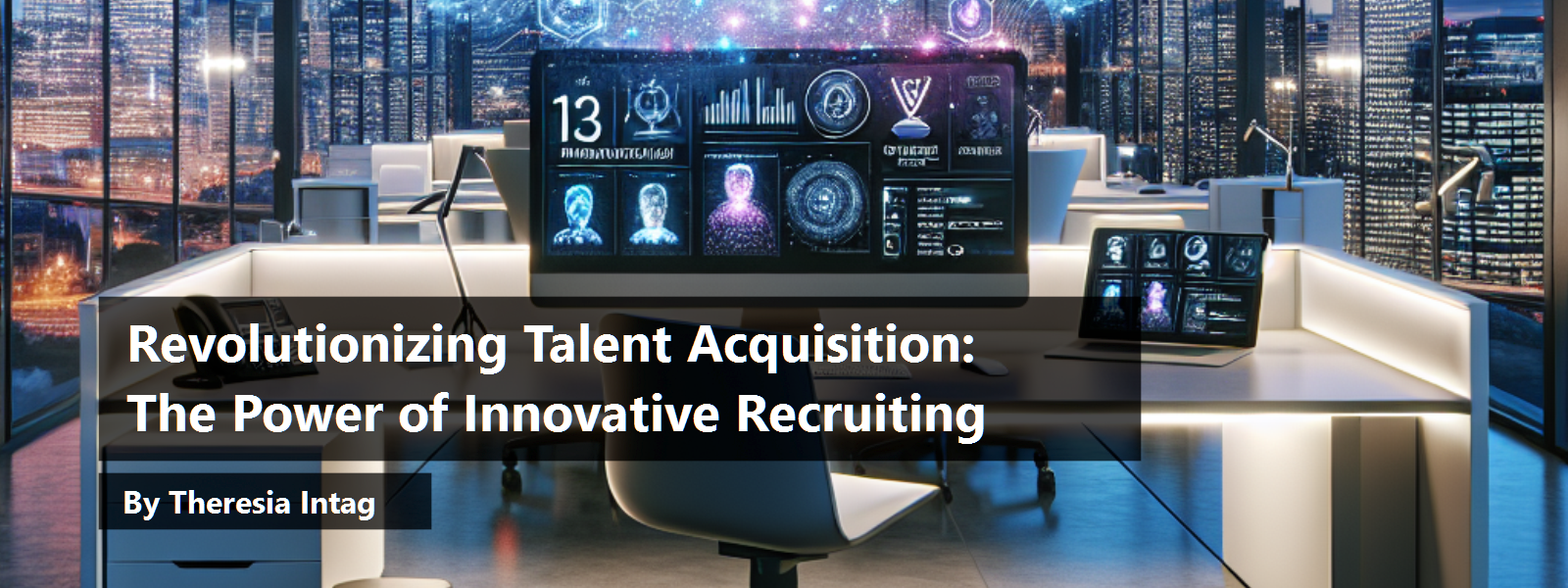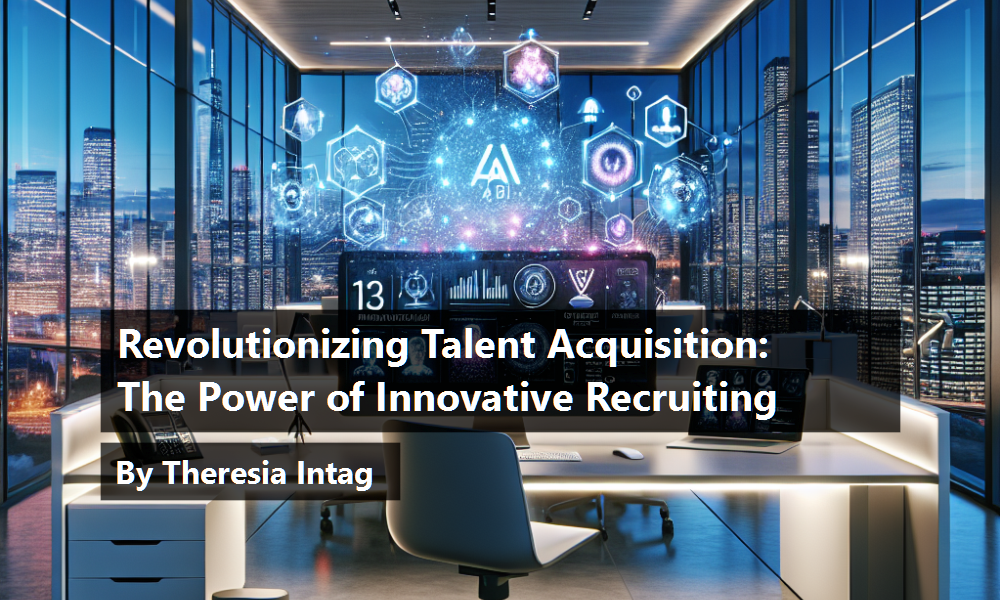Gone are the days of sifting through stacks of resumes and relying solely on traditional interviews. Enter the era of innovative recruiting, a game-changer that harnesses cutting-edge technologies and novel strategies to attract, identify, and secure top-tier talent. Are you taking advantage of new resources to work smarter? Let's delve into the transformative power of innovative recruiting and how it's reshaping the future of talent acquisition.
Embracing Technology: AI and Data-Driven Insights
At the heart of innovative recruiting lies the infusion of artificial intelligence (AI) into the talent acquisition process. AI-driven algorithms can quickly and accurately screen thousands of resumes, identifying candidates whose skills and experience align with a company's needs. These algorithms learn and adapt over time, continuously improving their ability to spot the best fits.
Moreover, data-driven insights have emerged as a game-changer for recruiters. Analytics tools can provide in-depth information about the effectiveness of recruitment campaigns, the success of job postings, and even the performance of hired candidates. By harnessing this data, companies can refine their recruiting strategies, saving time and resources while optimizing their results.
Generative AI is a powerful tool for optimizing job descriptions and interview questions. It can analyze the specific requirements of a role and create job compelling postings that reflect your company culture.
TIP: Eliminate biases in job postings by suggesting inclusive language, which is essential for attracting a diverse pool of candidates.
In the interview process, generative AI helps craft tailored questions that assess skills, experiences, and cultural fit, streamlining preparation and ensuring alignment with the company's goals. By adding efficiency and personalization to HR processes, generative AI enhances the recruitment journey for both employers and job seekers, ultimately leading to better outcomes in talent acquisition.
Video Interviews and Virtual Reality
Innovative recruiting has also redefined the traditional interview process. Video interviews, for instance, have become commonplace, enabling recruiters to assess candidates remotely. This not only saves time and resources but also widens the talent pool, making it easier to attract candidates from different geographic locations.
Virtual reality (VR) has taken things a step further, offering immersive and interactive interview experiences. Some companies have started to use VR simulations to evaluate candidates' problem-solving skills, adaptability, and cultural fit. It's a novel approach that goes beyond the standard interview questions, providing a more holistic view of a candidate's capabilities.
Gamification: Making Recruiting Fun
Innovative recruiting has introduced an element of playfulness into the process through gamification. Recruiters are now using games and challenges to assess candidates' skills and competencies. For example, coding challenges, case studies, or business simulations can help recruiters gauge a candidate's problem-solving abilities and creativity.
In an article authored by Chiradeep BasuMallick titled, “Gamification In Reccruitment: All You Need To Know,” the innovative concept of gamification in the hiring process is explored. BasuMallick suggests incorporating interactive quizzes, company-related quests, behavioral tests, and industry challenges to create a more engaging and meaningful screening mechanism. This approach not only introduces an element of fun but also effectively identifies candidates who thrive under pressure and relish challenges. As an illustration of the potential impact of gamification, BasuMallick highlights the success story of the French postal service, which reduced recruit dropouts from 29% to a remarkable 8% by adopting a gamified recruitment approach.
A LinkedIn community article titled, “How Do You Gamify Recruiting Software?” reinforces the idea of gamification as a game-changer in the recruitment landscape. It suggests that companies can leverage gamification to offer candidates badges, points, or leaderboards as rewards for completing tasks and achieving specific goals during the hiring process. This not only enhances the candidate's experience but also adds a competitive edge to a company's recruitment efforts. While the concept of gamification in recruiting is still relatively new, its potential to transform the hiring process and engage top talent makes it an intriguing and innovative approach that forward-thinking organizations should consider adopting.
Employer Branding in the Digital Age
A strong employer brand is critical in attracting top talent. Innovative recruiting recognizes this and leverages the power of digital media to create an attractive employer brand presence. Companies are using social media, employer review sites, and even virtual tours to showcase their culture and workplace environment. This not only helps in attracting candidates who resonate with the company culture but also allows potential candidates to assess the company from afar.
An innovative approach leverages digital media to paint vibrant portraits of company culture, values, and workplace environments. This approach not only attracts candidates who align with the brand but also empowers potential candidates to make informed decisions about their career choices. It's a two-way street where companies and candidates engage in a digital dance, fostering connections that can lead to lasting partnerships. In the relentless pursuit of top talent, the art of digital employer branding has become a defining hallmark of success.
It's not just about presenting an appealing image; it's about establishing a genuine connection with candidates. Companies must be authentic, consistent, and responsive in their digital presence, just as they would be in person.
Remote Onboarding and Upskilling
Innovative recruiting extends beyond the hiring process. It encompasses remote onboarding and continuous upskilling of employees. Companies are using e-learning platforms, webinars, and virtual training sessions to keep employees engaged and updated on the latest industry trends. This approach not only helps retain talent but also ensures that employees remain competitive and adaptable in an ever-changing job market.
Companies may also consider establishing internal AI learning communities or study groups, where employees can share resources, knowledge, and insights, fostering a culture of mutual learning and support at no extra cost. Furthermore, organizations can sponsor or host AI-related webinars, workshops, or seminars, inviting experts to share insights and practical applications, enhancing employee skills without a significant financial burden. According to the LinkedIn Talent Blog, “How AI Will Change Hiring,” (https://www.linkedin.com/business/talent/blog/talent-acquisition/how-ai-will-change-hiring )"...talent leaders need to upscale both themselves and their teams on how to use AI now" – an ethos that resonates deeply with the dynamic spirit of innovative recruiting.
Conclusion: The Future of Recruitment
Innovative recruiting is more than just a trend; it's a transformative force that's here to stay. Companies that embrace these innovative approaches are better equipped to attract and retain top talent in a highly competitive job market. As technology continues to advance, we can only expect to see more creative and efficient ways of identifying and nurturing talent. So, whether you're a recruiter or a job seeker, buckle up, because the future of recruitment is an exciting journey filled with innovation and endless possibilities.






